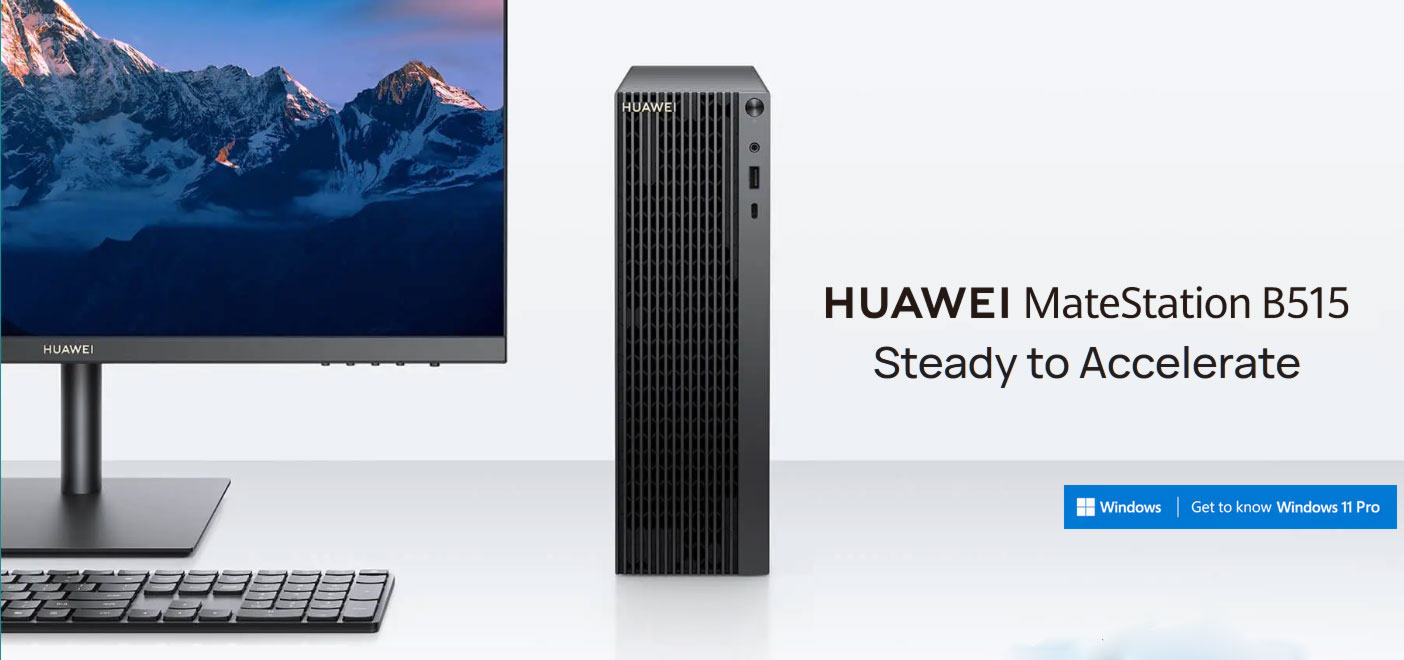Huawei Has Big Plans for Its New Commercial PC Business
It just launched seven categories, including laptops, desktops, and tablets.
Huawei's CEO, Yu Chengdong, has taken to QQ ('China's Twitter') to announce that the firm has formed an operational division which translates as the 'Huawei Terminal Business'. Previously, Huawei marketed its PCs solely to fickle consumers, and its PC laptops were developed and launched under the auspices of the 'Huawei Consumer Business.' We first saw some custom Huawei devices emerge back in 2019, powered by the company's Kungpeng 920 Arm v8 processors. Now the 'Huawei Consumer Business' has been folded into the 'Huawei Terminal Business'. However, there is still some clear distinction within the organization, with the 'Huawei Terminal Business' being divided into consumer and commercial wings.
Huawei has already established what appears to be a considerable lineup of business products. The MateBook B models, an enterprise laptop series, are joined by MateStation desktops, MatePad tablets, monitors, smart screens, plus printers and wearables. The reorganization and new products will help Huawei expand into what is already a lucrative segment for it, embracing commercial and governmental organizations, and catering more directly to their needs.
We wondered if the MateBook B series were simple rebrands of existing consumer MateBook laptops. This isn't quite the case, as Huawei seems to have launched a new series of consumer laptops called the MateBook D series, which have a lot in common with the B series, but offered fewer configuration options for the screen sizes we checked. However, it is notable that the new MateBooks, both for business and consumer, feature at best 11th-Gen Intel Core processors, with some still packing 10th-Gen CPUs. It remains to be seen if Huawei will add in devices based on its own Arm chips.
Moving along to ponder over the desktops, these are compact unassuming, and workmanlike designs. There are two models of Huawei MateStation desktop buyers can configure. They differ primarily by processor; one comes with an AMD Ryzen 5 4600G APU, and another with a choice between three 10th Generation Intel Core processors, with the pinnacle being the Core i7-10700. Like the laptops, all have Windows 10 or 11 pre-installed.
Huawei claims the MatePad C5e, a 10.1-inch Android 10 (EMUI 10.1 skin) tablet powered by an octa-core Kirin 710A, is "built for business." However, other than that statement, you might not know it was a business tablet, as there are no particular features or specs that make it stand out from the multitudes of other consumer tablets.
Due to sanctions, Huawei products aren't that easy to buy in the US. However, that didn't stop us from acquiring and reviewing the Huawei MateBook X Pro 2021 a year ago to see what we might be missing out on. Overall, the MateBook X was a laptop with a handsome profile but wasn't really worth hunting down where slim and stylish laptops from the likes of Dell and HP (or Apple) are readily available. The same will likely be true of the new products unless Huawei can work some magic with distribution and pricing.
Get Tom's Hardware's best news and in-depth reviews, straight to your inbox.

Mark Tyson is a news editor at Tom's Hardware. He enjoys covering the full breadth of PC tech; from business and semiconductor design to products approaching the edge of reason.
-
Geef The sad part is uninformed businesses will buy it without knowing Huawei puts chips in their devices to allow the Chinese government to access it any time. The same government that is well known for stealing intellectual property constantly.Reply

